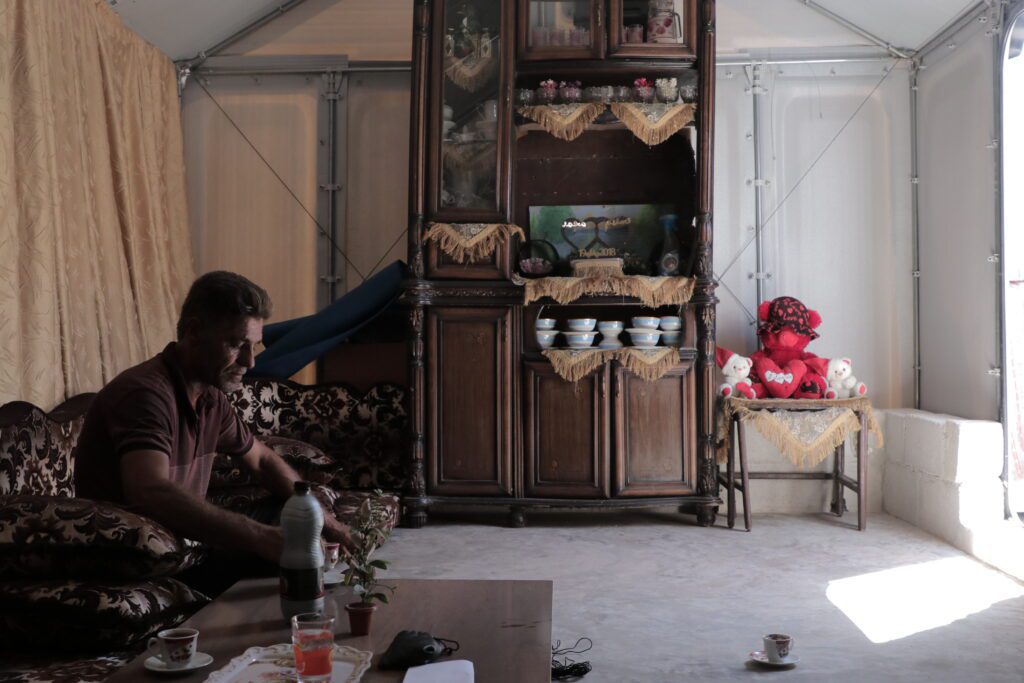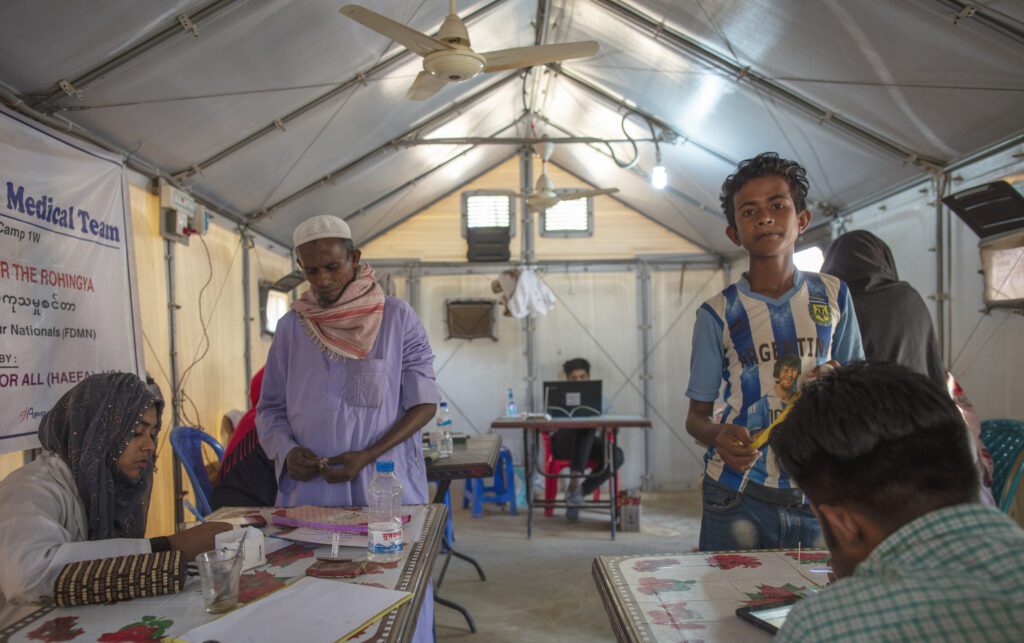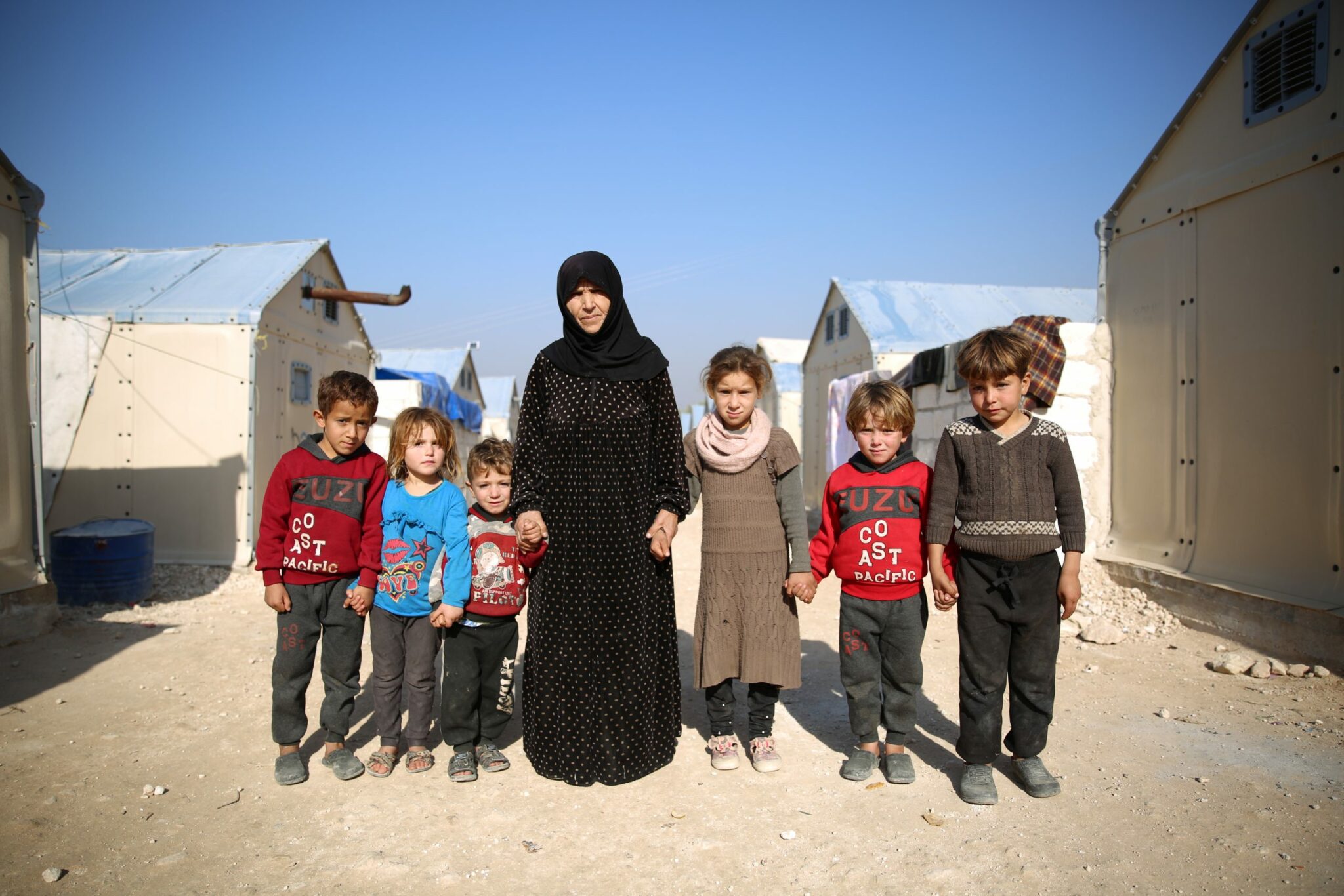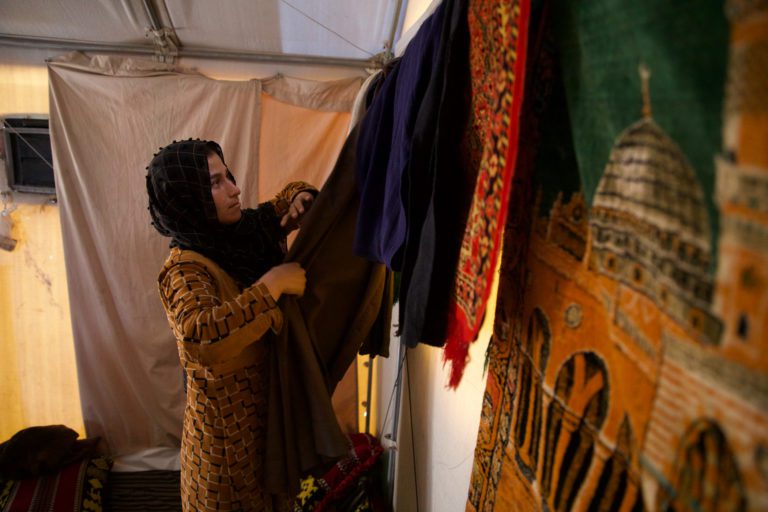More people than ever – over 117 million people worldwide – are forcibly displaced due to conflict and disasters.
Every year, on June 20th, we commemorate World Refugee Day to remember and support the millions of people forced to leave their homes and countries. On this important day, we stand with them in solidarity, honour the resilience of millions of refugees worldwide, and raise awareness of their many challenges.

“Thank God, this shelter is much better than the old tent. I feel like I’m living in something resembling a house; the most important thing is that it’s insulated and protects us from the rain in winter and that the roof is high, and we can stand upright inside.”
Raed
Raed, a Syrian internally displaced person, previously lived with his family of six in a four-room house. They were forced to relocate multiple times before settling in a tent in a camp near the Turkish border. Their lives were then disrupted by the devastating earthquake of February 2023.
Life in the tent was challenging due to wind damage, lack of privacy, and constant insecurity. Thanks to the collaborative efforts of one of CARE’s partners in Northwest Syria and the support of the IKEA Foundation, Raed and his family could move into a Relief Housing Unit (RHU), which offers protection and a more comfortable living environment for Raed and his loved ones.

“Earlier, the clinic was situated under the sky, and I had dust allergies as a result… Now I work under a roof, and there is a fan, so the work environment is more comfortable.”
Zannat Ara, Pharmacist, HAEFA
In 2018, HEAFA established two primary health care centres using the extended Better Shelter Relief Housing Units (RHU) in the Kutupalong and Balukhali refugee camps in Bangladesh. These centres offered free-of-charge healthcare services to affected communities. Four full-time doctors and eight healthcare workers provided medical services six days a week. The project has been ongoing since 2018 and continues to provide healthcare to the Rohingya communities in Cox’s Bazar. Thanks to support from the Global Office for Humanitarian Affairs (GoHA) at PwC, over 60,000 people have received medical care in the Kutupalong and Balukhali FDMN camps. The project has benefited a total of 276,473 patients since its commencement.

“This support represents a real opportunity. Our income will now allow us to contribute to the expenses for our families’ needs and not to depend solely on assistance.”
Falmata Kaou, a 30-year-old refugee from Nigeria, is producing soap at the Sayam Forage camp with the support of “Bien Faire pour les Femmes Rurales,” a non-governmental organisation in Niger. The NGO assists five women’s groups at the camp, facilitating the artisanal production of solid and liquid soap. This support also includes components for organisational and financial management. Members of these groups affirm the value of this aid, as it empowers them and helps them generate income to make meaningful contributions to their families’ expenses.

“Our lives turned upside down; we entered a dark nightmare that I don’t think any other people on earth have ever experienced.”
Hassan, a Syrian internally displaced person and a father of eight, lost his home, garden, and animals in the war. He lost his job and had to rely on humanitarian aid from NGOs to meet his family’s basic needs. Before, they lived in a tent, which offered little protection. In response, the NGO Humanitarian Relief Association/ IYD, one of the NGO CARE’s partners in Northwest Syria, implemented Relief Housing Units provided by Better Shelter, offering better insulation, security and privacy than the tents. Hassan thinks that nothing is more important for his children than education. One of his sons is studying medicine, another is studying engineering, and his daughter is teaching.
Join us in standing with refugees and recognising their safety and protection rights. Nobody chooses to be a refugee, and we must all do whatever we can to support the many people living as refugees.
Give refugees a place to call home – donate now




